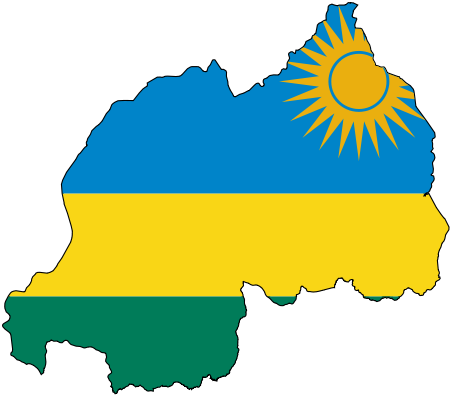Climate Resilience Centers
Understanding fine-scale, local and community impacts of climate change across this nation is a critical gap in climate research and analysis today.
Further, climate change is known to disproportionately impact people in disadvantaged communities due to increased exposure and vulnerability.
BER seeks to establish CRCs at HBCUs, non-R1 MSIs, and emerging research institutions to address critical research questions in support of the needs of stakeholders and communities in the pursuit of equitable climate solutions.
The CRCs will facilitate two-way engagement between BER sponsored research and regional communities, enhancing accessibility and translation of DOE research to inform and build climate resilience.
Efforts focused at local levels are expected to identify data sets, technical and process information, tailored models, and community contexts that will aid in the new investigations as well as bring critically needed community and local perspectives more centrally within DOE’s climate research planning.
CRCs will build upon and enhance the talent and capabilities at local institutions, providing a valuable resource to advance climate research, identify local resilience challenges, and develop equitable solutions.
These centers have the potential to catalyze additional research activities in climate and energy, the development of future technology innovations, and new jobs in communities across the country.
Background Climate resilience is the ability of a community or region to reach full recovery after being exposed to climate-induced stresses and damages, using strategies that adjust its adaptive capacity at minimal impact to natural, socioeconomic, infrastructure, and financial systems.
A key component of climate resilience involves prediction of climate change induced stresses and damages to systems with the use of high-fidelity models.
To offset potential stresses and damages in advance of their occurrence, scientists and stakeholders need to choose from a wide range of potential strategies that offer the best possible outcomes.
Thus, the resilience challenge will be to inform the process of choosing appropriate equitable solutions that can prepare for climate-induced risks.
Making effective, science-informed decisions will rely on the accuracy of predictions, evaluation of equitable strategies, and assessing the pace at which resources will be available to communities.
Furthermore, improving climate resilience over mid- to long-term time horizons needs to include investigations and predictions that can inform future technologies and approaches, where local institutions can identify research priorities and participate in economic development.
These predictions, for example, may include projecting when, where, and how the increasing pressures caused by sea level rise will affect coastal systems, how elevated heat stress will increasingly influence the security of energy systems, or the frequency and impact of wildfires or hurricanes on ecosystems and communities.
Together, these all combine to measure the time-dependent stressors, influences, and adaptive capacities in a changing climate and how to increase resilience against climate-induced risks.
Further, climate change is known to disproportionately impact people in disadvantaged communities due to increased exposure and vulnerability.
BER seeks to establish CRCs at HBCUs, non-R1 MSIs, and emerging research institutions to address critical research questions in support of the needs of stakeholders and communities in the pursuit of equitable climate solutions.
The CRCs will facilitate two-way engagement between BER sponsored research and regional communities, enhancing accessibility and translation of DOE research to inform and build climate resilience.
Efforts focused at local levels are expected to identify data sets, technical and process information, tailored models, and community contexts that will aid in the new investigations as well as bring critically needed community and local perspectives more centrally within DOE’s climate research planning.
CRCs will build upon and enhance the talent and capabilities at local institutions, providing a valuable resource to advance climate research, identify local resilience challenges, and develop equitable solutions.
These centers have the potential to catalyze additional research activities in climate and energy, the development of future technology innovations, and new jobs in communities across the country.
Background Climate resilience is the ability of a community or region to reach full recovery after being exposed to climate-induced stresses and damages, using strategies that adjust its adaptive capacity at minimal impact to natural, socioeconomic, infrastructure, and financial systems.
A key component of climate resilience involves prediction of climate change induced stresses and damages to systems with the use of high-fidelity models.
To offset potential stresses and damages in advance of their occurrence, scientists and stakeholders need to choose from a wide range of potential strategies that offer the best possible outcomes.
Thus, the resilience challenge will be to inform the process of choosing appropriate equitable solutions that can prepare for climate-induced risks.
Making effective, science-informed decisions will rely on the accuracy of predictions, evaluation of equitable strategies, and assessing the pace at which resources will be available to communities.
Furthermore, improving climate resilience over mid- to long-term time horizons needs to include investigations and predictions that can inform future technologies and approaches, where local institutions can identify research priorities and participate in economic development.
These predictions, for example, may include projecting when, where, and how the increasing pressures caused by sea level rise will affect coastal systems, how elevated heat stress will increasingly influence the security of energy systems, or the frequency and impact of wildfires or hurricanes on ecosystems and communities.
Together, these all combine to measure the time-dependent stressors, influences, and adaptive capacities in a changing climate and how to increase resilience against climate-induced risks.
Obtain Full Opportunity Text:
https://grants.nih.gov/grants/guide/rfa-files/RFA-DA-25-013.html
Additional Information of Eligibility:
To advance programmatic objectives, in accordance with 2 CFR 910.126, Competition, eligibility for award is restricted to domestic applicants except nonprofit organizations described in section 501(c)(4) of the Internal Revenue Code of 1986 that engaged in lobbying activities after December 31, 1995, that must be either: 1.
Classified as an MSI and NOT listed as an R1 Research Institution, or 2.
An emerging research institution, defined as an institution of higher education with an established undergraduate or graduate program that has less than $50,000,000 in annual Federal research expenditures.
Using the current data available, a list of eligible institutions is provided at https://science.osti.gov/grants/Applicant-and-Awardee-Resources/Institution-Designations.
An institution that meets these criteria either on the date this FOA is published, or the date pre-applications are due will be eligible.
A goal of this FOA is to increase participation of underrepresented groups in BER’s research portfolio.
BER is fully committed to advancing a diverse, equitable, and inclusive research community which is key to providing the scientific and technical expertise for U. S. scientific leadership.
This program is intended to build research capacity in climate resilience, leverage ongoing DOE climate science and capabilities at national laboratories and universities, and build two-way engagement between DOE funded research and community stakeholders.
Full Opportunity Web Address:
http://grants.nih.gov/grants/guide/rfa-files/RFA-DA-25-013.html
Contact:
Agency Email Description:
SC.GrantsandContracts@science.doe.gov
Agency Email:
Date Posted:
2023-10-18
Application Due Date:
Archive Date:
2024-04-06
Social Entrepreneurship
Spotlight
Rwanda as Social Entrepreneur Fund Beneficiary

The Republic of Rwanda has been picked as one of the six African countries as beneficiaries for a new fellowship fund program designed at supporting social entrepreneurs in tackling issues on food security.

